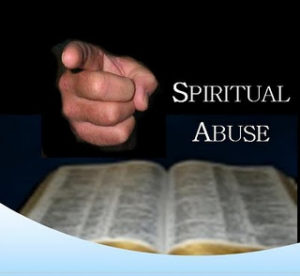 Recently I have read about the decline of institutional and denominational churches in favour of independent Pentecostal gatherings. When one Anglican Church is closed, it is reported that six Pentecostal congregations emerge to take its place. If one does the maths, and this pattern continues, within 20 or 30 years Pentecostal styles of religion will be the dominant face of the Christian faith in this and many other countries.
Recently I have read about the decline of institutional and denominational churches in favour of independent Pentecostal gatherings. When one Anglican Church is closed, it is reported that six Pentecostal congregations emerge to take its place. If one does the maths, and this pattern continues, within 20 or 30 years Pentecostal styles of religion will be the dominant face of the Christian faith in this and many other countries.
When I look at the Church press, dominated for me by the Church Times, there seems to be a complete ignorance of this changing face of Christianity in Britain. This current massive popularity of what is commonly called ‘happy clappy’ independent churches seems to have been ignored by many commentators. The fact that these churches are also so far invisible to the media also means that many people are able to pretend that they are of little importance.
There are a variety of reasons why I am anxious about this explosion of Pentecostal theology and worship in the UK. If such churches were always going to be in a minority, then we could regard them as a healthy balance to the more traditional liturgical churches in the UK. Something changes when this exuberant expression of the faith becomes a dominant one. The perception of the outside world towards the church changes. The word ‘Christian’ comes to mean for the ‘man in the street’ something strange and even outlandish. The old notion of Britain being considered a Christian country becomes less viable. The outsider is no longer prepared to regard him/herself as even nominally Christian when the word has taken on a meaning of weirdness. I have often referred to the way that the word Christian has frequently been highjacked by groups with a strong conservative agenda. The whole church has a problem when the dominant expression of Christianity in this country puts forward a style of worship and theology that is fundamentalist and strongly experiential.
What are the further reasons that I am concerned about the dominance of Pentecostal worship in Britain today? A strong reason for my concern is that whatever I think about the theology and ideas of this branch of Christianity, I see an emphasis on experience above everything else. We can, with reservations, applaud exuberance, free worship and expansive music. The problems start when this style becomes the dominant one. Those who are repelled by this cultural expression of the Christian tradition have nowhere they can call home.
50 or 60 years ago, when I was a young person, the Church was institution which had a strong sense of social and economic issues. Through the parish system the church was present in every community throughout the land. Even when only a few people attended the local Anglican parish, there was always an attempt to be regarded as a body committed to serve the area. This outward perspective is no longer a dominant one even in many Anglican parishes. The independent churches are even less involved in the communities where they are found. Their priority is to provide an experience of intensity and passion through their music and styles of worship. It is not unfair to describe most modern independent churches as being far more focused on their interior life than any involvement with the community beyond the church doors. Such Pentecostal-style churches are cocoons of intense experience. This is encouraged for its own sake and is seldom seen as equipping members for involvement with surrounding neighbourhood. The word evangelism, which is highly prized, is all about increasing numbers of members particularly to fund the financial commitments which are needed to pay for the ministry. Converts are, to use an old-fashioned image, those who are like burning embers snatched out of a fire. There is no understanding of the call in the Bible for Christians to become salt and light to the world. In contrast the Anglican Church of the 1950s and 60s had a sense that it was a church for everyone, even though it realised that not everyone would attend its services.
The independent Pentecostal style of worship in the new churches is never going to be palatable for the vast bulk of our population. Not only do many people find the music jarring and alien, but the strong flavour of anti-intellectual rant found in many sermons, is decidedly off-putting for people of education. However much a preacher may quote the passage about the gospel being hidden from the wise, there is nothing attractive about faith which simply avoids the world of thinking and reason. If this form of Christianity becomes dominant in our society, then it will be very hard for other expressions of the faith to survive. The tradition of university study, reflective reasoned argument and academic rigour might simply cease to exist.
I have to say that I become somewhat depressed at the way that non-rational and experiential expressions of faith are taking over in Britain today. I need to repeat that they are valid forms of faith within a mixed economy of styles and theology. If, however, they become dominant then the Church in England has a real problem. We all know that it is healthy for a political democracy to have at least two parties which are reasonably matched in numbers and influence. This way an opposition party can keep a check on the party of government preventing it from becoming too powerful. The political situation in Britain at the moment is suffering because of the weakness of the opposition. When opposition is weak the governing party becomes too powerful. We can be grateful that some of the excesses of the Trump regime in the States have become neutralised by the existence of a reasonably united Democratic party. Such checks and balances are healthy and they also apply to church life. The church needs the life of the mind and intellect as well as the experiential and exuberant aspects of human experience. Academic theology can kill the Christian faith dead for many people in this country. Equally a dominating culture of anti-intellectual expressions of the faith is also lethal. Let us hope that, in the future, the life of the mind can be allowed to coexist with the energy involved in the primal experience of Pentecostal worship. These two expressions of Christian faith may find it difficult to exist at the same time in the same place. Nevertheless, it is possible for the exponents of each to have respect and some insight into the value of the other. In this way, the richness of the mind and the heart can be allowed to co-exist. Together the full depth of all that is involved in Christian faith can be celebrated and enjoyed.







